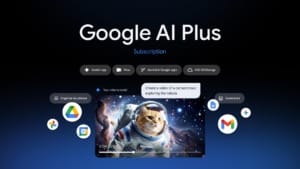Google updates the rules for synthetic content in political ads
Google updates its political content policy, requiring clear disclosure of synthetic or digitally altered content in election ads to combat misinformation.

Google has updated its political content policy, now requiring advertisers to clearly disclose when election ads contain synthetic or digitally altered content. This significant move is aimed at boosting transparency and, more importantly, combating the spread of misinformation in the ever-evolving landscape of political advertising.
Table Of Content
This policy update is significant as it addresses the growing concern about the potential misuse of AI-generated content to mislead voters. By implementing these new rules, Google is taking steps to ensure that political ads are more transparent, which is especially important as we look forward to the 2024 U.S. elections with hope for a more informed electorate.
Key details
Advertisers must check a checkbox in their campaign settings to indicate if their content is synthetic or digitally altered. Depending on the format of the ad, Google will generate a disclosure or require advertisers to provide one. Here’s how it works:
- Google will automatically generate an in-ad disclosure for specific formats like feeds and shorts on mobile phones and in-stream on various devices.
- Advertisers must ensure they include a prominent disclosure for all other formats.
How it works
Disclosures must be clear and conspicuous, ensuring they are noticeable to users. Google has provided examples of acceptable disclosure language, which will vary based on the ad’s context. This ensures that the disclosures are adequate and that users are well-informed about the nature of the content they view.
This update from Google is a response to the increasing use of AI in creating synthetic content. Without proper disclosure, voters might be misled by digitally altered ads. By enforcing these new rules, Google hopes to make political advertising more transparent and trustworthy.
What to watch
It will be interesting to see how these new rules are enforced and their impact on political advertising strategies. As the 2024 U.S. elections draw nearer, your role in monitoring the effectiveness of these disclosures will be crucial. Advertisers will need to adapt to these changes, potentially altering how they create and distribute political ads, and your vigilance will ensure they do so responsibly.
Between the lines, Google’s move is a significant step towards transparency in political ad creation and distribution. It requires advertisers to be upfront about their use of synthetic content, reflecting a growing need to address the ethical use of AI in media. This ensures that the public remains informed and not misled, a key component in political campaigns.
















